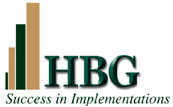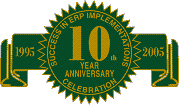Advanced Planning and Scheduling (APS)
What APS can do for your ERP system?
As customers demand shorter lead times, more manufacturing flexibility and better prices, most manufacturers find that the standard ERP tool set does not offer solutions to the challenges posed by their customers' demands.
Namely, it does not:
- Provide answers to resource availability questions as alternatives to satisfy customer's demands are explored in short time intervals.
- Map current Shop Floor or Supply Chain conditions with requested changes and additions, hence analyzing the impact of disruptions and proposed solutions in a rapid and effective manner.
- Minimize conflict at each manufacturing operation (or Supply Chain delivery nodes) to increase the product flow through out the plant or through out the Supply Chain.
 |
"Even firms that have successfully implemented ERP systems recognize that there is evidence of late orders, excessive expediting, bottlenecks, excess work in process and invalid schedules."
- Umble and Srikanth, Synchronous Manufacturing -
|
A valid APS solution must provide answers to the above questions while leveraging your ERP's order management, product and process definition and transaction handling capabilities. It does not replace your investment in technology; it enhances it.
In this sense, APS is a lot more than a collection of algorithms (although having those applicable to your environment is important).
Your APS solution must also validate and incorporate the business rules of your manufacturing and distribution model. It must be able to support a quick and effective way to simulate models such as Flow Manufacturing, Theory of Constrains (D-B-R), Lean Manufacturing, JIT/Kanban, Synchronous Manufacturing and Constant Work-in-Process (to name a few) by extracting applicable business, scheduling, replenishment and delivery rules.



